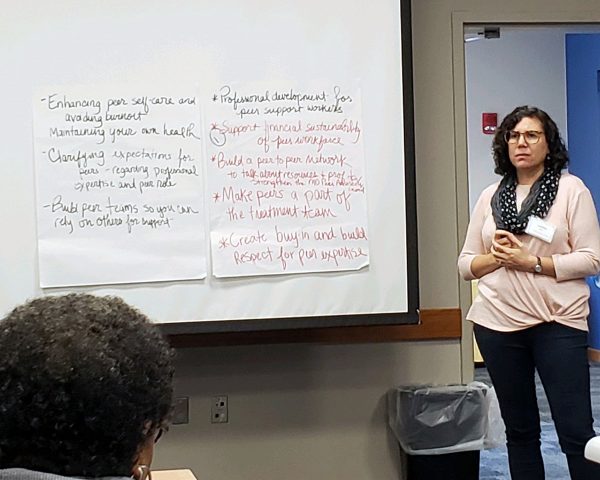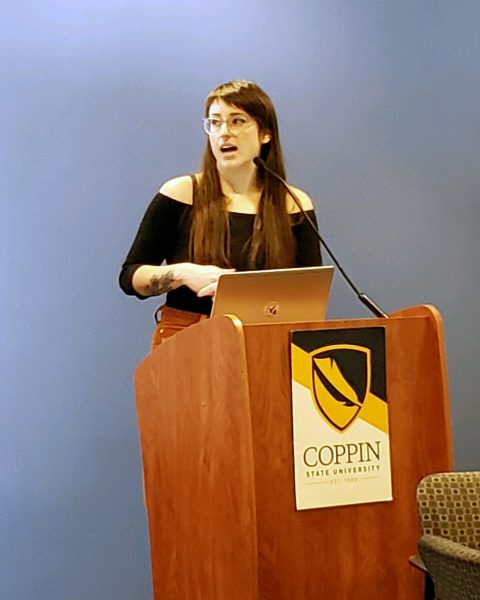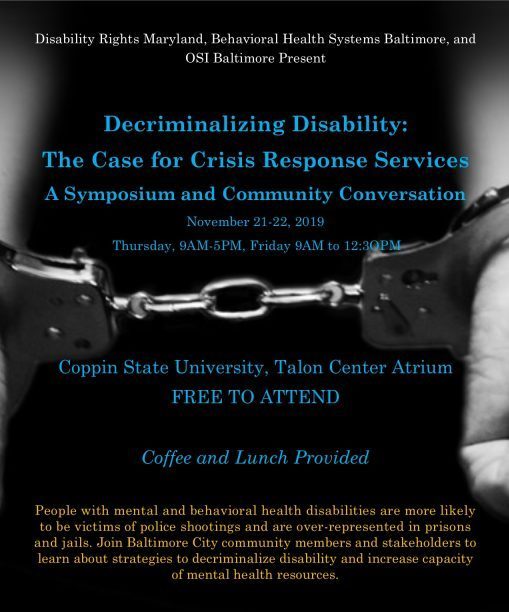
Luciene Parsley, DRM Director of Legal Advocacy.
Disability Rights Maryland recently co-hosted a symposium, Decriminalizing Disability: The Case for Crisis Response in Baltimore City, with Behavioral Health System Baltimore and Open Society Institute-Baltimore on November 21st and 22nd at Coppin State University in West Baltimore. Attendees represented a broad range of backgrounds and perspectives including civil rights advocates, behavioral health providers, and members of the Baltimore City Police Department.
The program was designed to review gaps in the behavioral health system and explore alternative methods of crisis response for people with disabilities instead of depending solely on law enforcement to respond during a mental health crisis. The first day of the symposium featured a series of panels with experts from around the country who discussed how to increase capacity for community-based services and to outline a vision for a comprehensive system of care for individuals with disabilities that does not rely solely on the police. The second day engaged attendees in discussions to identify priorities and practical implementation strategies. The group identified several priorities including increased housing; capacity for behavioral health services around the clock and to include youth services; reforming 911 dispatch services to allow for diversionary options; and crisis intervention education for police to recognize stigma, bias, and how police presence can cause trauma during encounters. Participants were then given the opportunity to share their ideas regarding implementation strategies with others in smaller groups.

Panelist Chelsea Swift, CAHOOTS/White Bird Clinic, speaks at the Decriminalizing Disability symposium.
The symposium offered an opportunity for advocates, stakeholders, providers, and law enforcement to share their concerns with the existing behavioral health system and begin to develop a plan that addresses the needs of the community. Disability Rights Maryland was glad to help facilitate these conversations and move towards meaningful systemic reforms that will improve the lives of individuals with disabilities living in Baltimore.

